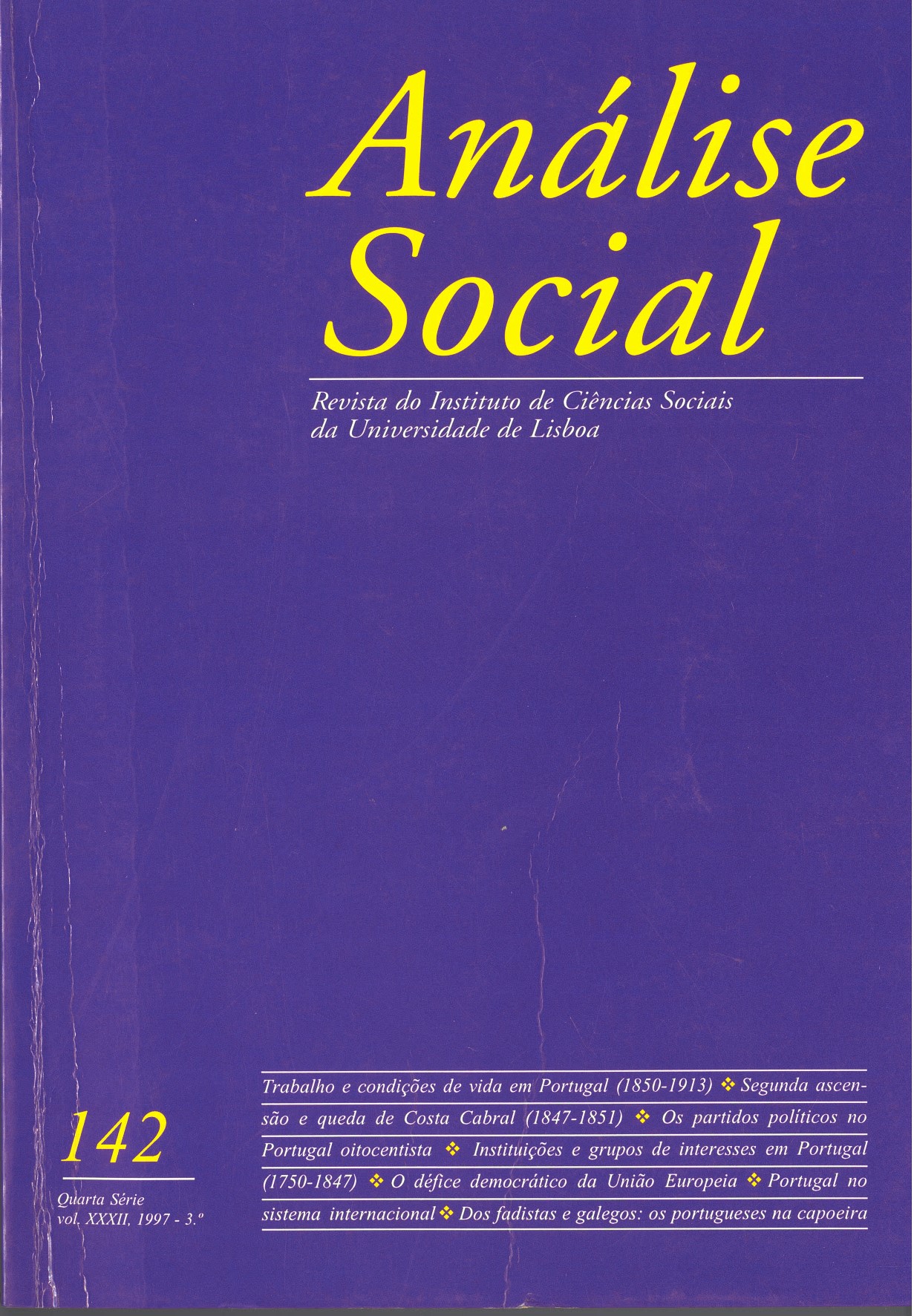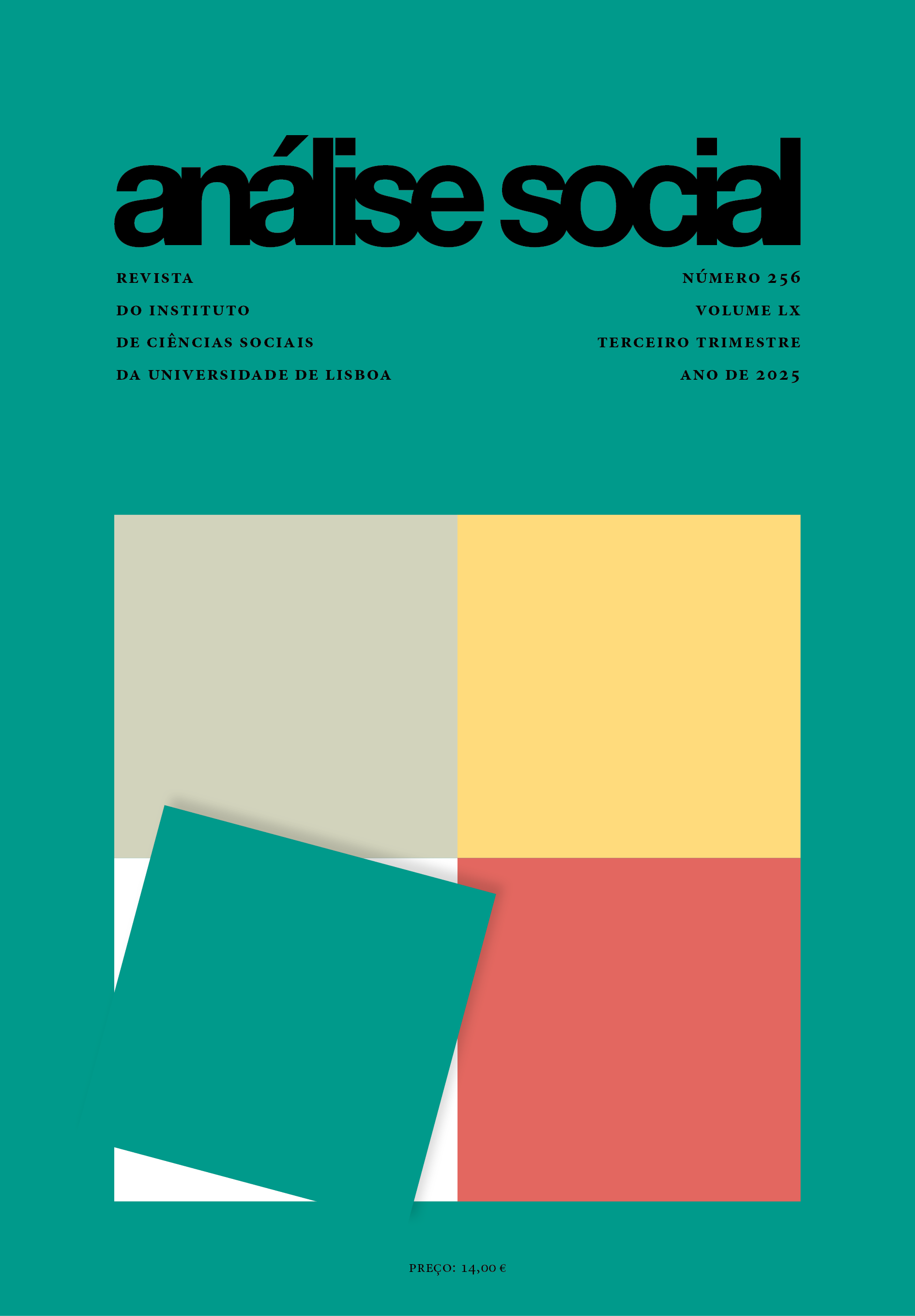Treze teses sobre a disfunção nacional - Portugal no sistema internacional
DOI:
https://doi.org/10.31447/AS00032573.1997142.06Palavras-chave:
disfunção no sistema internacional, evolução interna portuguesa, sociedade portuguesa contemporâneaResumo
O artigo analisa a ligação de Portugal ao mundo na época contemporânea numa posição crítica em relação às teses prevalecentes da «secular dependência» e do «atraso importado» do exterior. São detectados os elementos de uma disfunção no sistema internacional, que é estudada nas suas características multifacetadas e referenciada nas suas causas e modo de funcionamento. É investigada a forma como a disfunção se reflecte na evolução interna portuguesa e qual o seu impacto na formação da sociedade contemporânea. A disfunção é essencial para compreender elementos básicos da formação do Portugal dos dois últimos séculos, desde o processo das grandes transições políticas, económicas e sociais até ao papel dos militares, à formação das elites sociais, à evolução das mentalidades, à forma de funcionamento das instituições e ao processo de inovação técnica e organizativa. O artigo reveste a forma de treze teses, cada uma tratando de modo muito resumido e simplificado um mecanismo ou característica importante da acção da disfunção, que se afirma como um conceito operativo central para a compreensão do Portugal contemporâneo. O estudo reflecte uma visão muito diferente da habitual sobre o papel de um pequeno Estado no sistema internacional e a forma como a sua ligação ao exterior condiciona a evolução própria, criando-se uma zona de interacção comum, onde o externo e o interno são inseparáveis, embora as aparências sejam o contrário.




